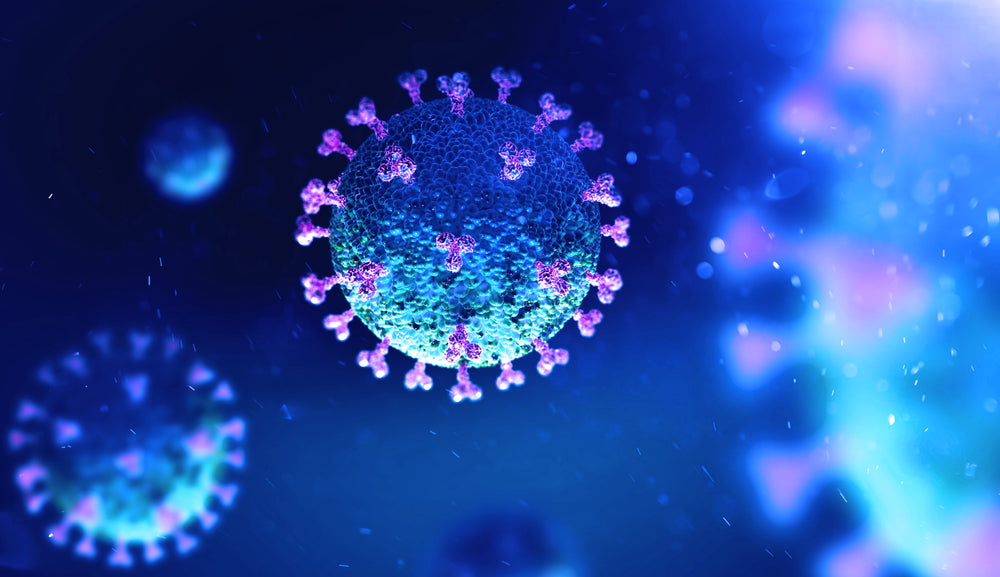It’s estimated that 3-7% of men and 2-5% of women suffer from obstructive sleep apnea, a sleep disorder that causes the individual to involuntarily stop breathing periodically while they sleep. It varies from person to person, while one individual might only stop breathing a few times throughout the night while another might stop breathing more frequently.
With the current environment, recent studies looked to determine if there was a link between COVID-19 and sleep apnea. Let’s find out the verdict.
Obstructive Sleep Apnea and COVID-19 Sleep Study Findings
According to Sleep Medicine Reviews, a recent study found a link between those with obstructive sleep apnea and COVID-19. Those individuals suffering from sleep apnea who contracted COVID-19 were more likely to deal with a severe case of the disease. The results of the study show that those with OSA had five times the risk of developing complications because of COVID-19, and as a result, were more likely to be hospitalized. The risk matters for all patients with obstructive sleep apnea, no matter their sex, age, or other health factors. The connection between the two still isn’t clear, but it is believed that the connection could be because both OSA and COVID-19 share many comorbidities.
However, it’s important to note that while patients suffering from OSA will have a more severe case of the disease, they are not at a higher risk of contracting COVID-19.
COVID-19 Precautions Those with Obstructive Sleep Apnea Should Take
Although those with obstructive sleep apnea don’t have a greater chance of catching COVID-19 than their counterpart, it’s important that they take the necessary precautions to avoid contracting the disease. If a positive diagnosis is confirmed, they will be forced to deal with the nasty side effects — so it’s never to avoid it altogether if possible!
OSA patients should take the following precautions:
- Wash your hands regularly – It’s incredibly important that individuals take the time to thoroughly wash their hands regularly throughout the day. Our hands touch our faces, food, cellphones, and many other things that can spread germs. Any time you interact with someone or leave your home, you should be washing your hands with soap and warm water for a minimum of 20 seconds. To ensure you’re washing your hands long enough, sing “happy birthday” to yourself. If a sink isn’t available, use hand sanitizer until you have the opportunity to wash your hands.
- Cover your face with a mask – Sometimes avoiding close contact with people is unavoidable. Anytime you leave your home, you should be utilizing a face mask or covering to prevent the spreading of germs. Coughing, sneezing, and simply talking can transmit the disease and infect anyone you come into contact with — a mask protects both you and the people about you.
- Disinfect surfaces frequently – So much is still unknown about COVID-19, which means it’s incredibly important that you’re taking even precaution to avoid contracting the disease. Take some time each day to clean off high-touch surfaces in your home with disinfecting spray.
- Maintain a distance of six feet – When coming in contact with other individuals, it’s important that you maintain social distancing protocols of 6 feet. This distance, along with wearing a mask, helps to reduce the spread of the disease by limiting the particles that could be spread through speaking, coughing, sneezing, and more. Whether you’re on a walk through the neighborhood or standing in line at your local grocery store, be respectful of the distance between you and those around you.
By following these precautions, those with obstructive sleep apnea will reduce their chances of contracting COVID-19.
How to Test for Sleep Apnea
If you think you might be suffering from sleep apnea, it’s important that you undergo sleep apnea testing. Understanding your diagnosis will encourage you to take the necessary precautions to avoid contracting COVID-19, and reduce your chances of dealing with severe complications. With ApneaMed’s home sleep study, you can perform a self-administered sleep test in the comfort of your home and have your results analyzed by a board-certified sleep physician.
ApneaMed can answer any questions you have about sleep apnea and provide you the necessary treatment to get you a more sound night’s sleep.

